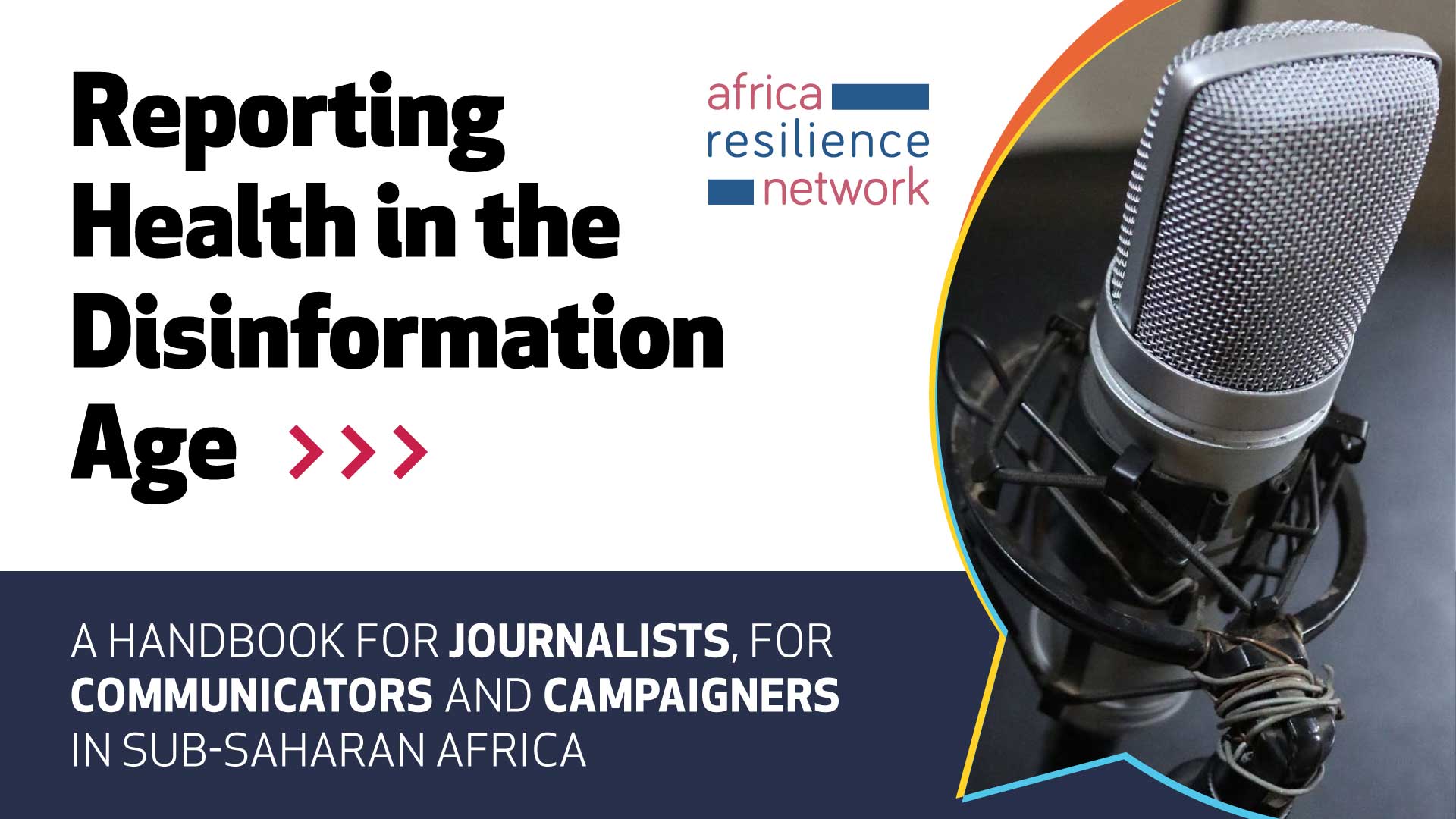Reporting Covid-19 in Africa
Fake news, conspiracies and bad science mean that many are missing out on the care they need.
Reporting Covid-19 in Africa
Fake news, conspiracies and bad science mean that many are missing out on the care they need.
A newly-launched IWPR handbook on Covid-19 reporting in Africa will help journalists and communicators keep their work ethical, accurate and accessible amidst a huge influx of pandemic disinformation.
The resource, intended to tackle the conspiracies and untruths which have become firmly embedded in how health issues are communicated, is part of IWPR’s Africa Resilience Network programme, which focused on exposing Covid-19 disinformation in both Nigeria and Kenya.
Over 70 Kenyan and Nigerian journalists participated in the ARN programme, which included online classes, a virtual newsroom and podcast. Partners included Africa Uncensored in Kenya and the International Centre for Investigative Reporting in Nigeria, along with the Centre for Information Resilience UK.
Although some of the issues facing journalists covering the pandemic are global, such as Covid-19 denial and vaccine hesitancy, participants note that other challenges are specific to the region.
For instance, a deep-seated mistrust of political leaders in Kenya and Nigeria mean that many people believe the pandemic has been exaggerated by governments in order to scam rich donors. Some religious leaders are involved in spreading disinformation, and fake cures, some of them centuries old, spreads both via social media and word of mouth.
Oluyinka Olayemi, a public health specialist in Nigeria who played a key role within ARN, told a launch event for the handbook that “at the onset of the pandemic access to health care dropped hugely, and good information was vital”.
Health professionals emphasise the real-world impact of misinformation during the pandemic.
“Covid-19 has underscored the important role of health journalism in helping the public navigate complex topics affecting their lives.”
“Every patient or potential patient comes in with their own ideas of what should be done for them or their loved ones,” said Dr Brian Kimani, founder of Doctors on Call Kenya and one of the book’s reviewers. “This includes refusal to have medication administered, ICU admissions, or vaccination: all after having read or hearing the wrong info.”
The handbook, with resources for journalists, communicators and campaigners producing media content, also gives advice on how to report on and write about scientific research accurately, without alienating audiences.
“Covid-19 has underscored the important role of health journalism in helping the public navigate complex topics affecting their lives,” Tom Trewinnard, the founder of the Fathm consultancy and project lead with Viral Facts Africa, a WHO pandemic response initiative. “As we all struggle with widespread misinformation, the fact-based, science-backed reporting by rigorous journalists has never been more important, and the Africa Resilience Network handbook is an important resource for expanding the number of journalists covering these topics."
This publication was produced as part of IWPR's Africa Resilience Network (ARN) programme.

